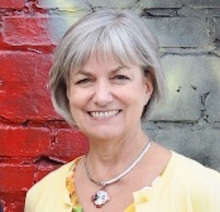Marion Donohoe, DNP, APRN, CPNP-PC

Assistant Professor
920 Madison Avenue, 9th Floor
Memphis, TN 38163
mdonohoe@uthsc.edu
Dr. Marion Donohoe's program of scholarship focuses on innovative interdisciplinary educational tools that are evidence based to foster and promote core values of public health nursing and pediatric primary care. She received her MSN in Children with Special Needs as a Clinical Nurse Specialist from George Mason University in Virginia. She had a traineeship at Georgetown University Child Development Center in Developmental Pediatrics. She received her Pediatric/School Nurse Practitioner post Master’s Certificate at The Catholic University of America. For 12 years, she cared for children and their families affected and infected by HIVAIDS at St. Jude Children’s Research Hospital. Her experience led to South Africa to teach nurses the primary and specialty care of children receiving antiretroviral therapy in research settings. The experiences of South Africa influenced her to pursue her DNP in Public Health Nursing at the UTHSC.
Dr. Donohoe passionately believes that innovative educational strategies and experiences empower student nurses who are learning to serve marginalized, underserved or newly insured populations in the Memphis community. She involves her students in strategies to mitigate impact of Adverse Childhood Experiences (ACEs) that negatively influence a child’s health, behavior and academic potential.
Marion educates nursing students in the Undergraduate and Doctoral Programs in the UTHSC College of Nursing. She uses the "Simulation of Living in Poverty" as one of the academic-community collaborations providing students from the Schools of Nursing Education, Public Health and Social Work, UT Scholars and Rhodes College students with the knowledge, skills and foundation to develop service learning projects that promote effective, culturally sensitive, educational, capacity building skills. New modalities, such as the Community Resiliency Model, translate the neuroscience of the brain to skills and communication techniques for children and youth living with toxic stress and violence in their neighborhood activate self-regulation and empower them. Resilient children live healthy lives, mentally and physically as adults.
